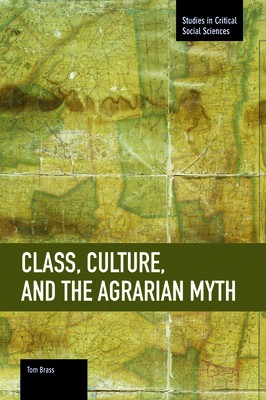
- We will send in 10–14 business days.
- Author: Tom Brass
- Publisher: Haymarket Books
- Year: 2016
- Pages: 447
- ISBN-10: 160846489X
- ISBN-13: 9781608464890
- Format: 15 x 22.9 x 2.5 cm, minkšti viršeliai
- Language: English
- SAVE -10% with code: EXTRA
Reviews
Description
Using examples from different historical contexts, this book examines the relationship between class, nationalism, modernity and the agrarian myth.
Essentializing rural identity, traditional culture and quotidian resistance, both aristocratic/plebeian and pastoral/Darwinian forms of agrarian myth discourse inform struggles waged 'from above' and 'from below', surfacing in peasant movements, film and travel writing. Film depictions of royalty, landowner and colonizer as disempowered, 'ordinary' or well-disposed towards 'those below', whose interests they share, underwrite populism and nationalism. Although these ideologies replaced the cosmopolitanism of the Grand Tour, twentieth century travel literature continued to reflect a fear of vanishing rural 'otherness' abroad, combined with the arrival there of the mass tourist, the plebeian from homeEXTRA 10 % discount with code: EXTRA
The promotion ends in 21d.08:29:51
The discount code is valid when purchasing from 10 €. Discounts do not stack.
- Author: Tom Brass
- Publisher: Haymarket Books
- Year: 2016
- Pages: 447
- ISBN-10: 160846489X
- ISBN-13: 9781608464890
- Format: 15 x 22.9 x 2.5 cm, minkšti viršeliai
- Language: English English
Using examples from different historical contexts, this book examines the relationship between class, nationalism, modernity and the agrarian myth.
Essentializing rural identity, traditional culture and quotidian resistance, both aristocratic/plebeian and pastoral/Darwinian forms of agrarian myth discourse inform struggles waged 'from above' and 'from below', surfacing in peasant movements, film and travel writing. Film depictions of royalty, landowner and colonizer as disempowered, 'ordinary' or well-disposed towards 'those below', whose interests they share, underwrite populism and nationalism. Although these ideologies replaced the cosmopolitanism of the Grand Tour, twentieth century travel literature continued to reflect a fear of vanishing rural 'otherness' abroad, combined with the arrival there of the mass tourist, the plebeian from home

Reviews